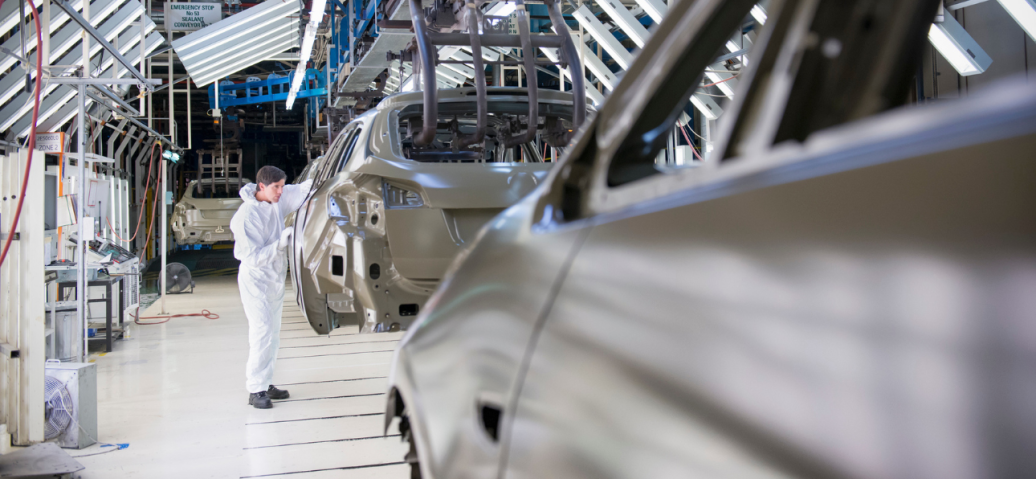The automotive industry has a challenging road ahead. Organizations are having to navigate stringent emission standards, tackle economic and commercial issues caused by the global pandemic, and innovate faster than ever before to come out on top in a highly competitive environment.
Overcoming such hurdles will require the industry to optimize current processes and ways of working, starting with the engine that drives the sector forward — its workforce.
Carmakers require a highly skilled yet flexible workforce that can adapt quickly to change. But as the market evolves from an engineering-based sector into a software-led market, are there enough people with the right skills to keep up with the pace of innovation? And what can be done to attract such highly sought-after talent?
The Race to Find Technical Talent
Electric vehicles. Self-driving cars. 3D printing. Human-machine interfaces. Tech developments within the automotive industry are happening at high speed, allowing vehicles to become safer, more fuel efficient, and better connected.
McKinsey’s Center for Future Mobility predicts that by 2030, up to 30 percent of a vehicle’s total costs will be driven by software and electronics.
The increasing use of software in vehicles is exciting, and its potential is limitless. Yet 91 percent of industrial manufacturing leaders agree that they are minimally prepared for workforce changes caused by technology (Deloitte). Finding appropriate technical talent — from software architects to developers — has become a critical need. After all, those are the people with the skills needed to drive the automotive industry toward its digital-first (or even driverless) future.
Learn how Citrix can help carmakers and the manufacturing industry adopt a digital-first approach.
An Ever-Expanding Skills Gap
The best course of action for carmakers is to create a strategy that addresses changes in skills and roles. Sounds simple enough. The only problem is that every other carmaker has the same priority. New findings from the Institute of the Motor Industry show that automotive vacancies are higher than they have been in 20 years — at more than 23,000 — accounting for approximately 4 percent of the workforce.
This growing number of vacancies demonstrates how critical the market’s skills gap is. Skill shortages are reducing operational efficiency, margins, and productivity. The manufacturing organization Make UK estimates that the number of vacancies in the industry are costing the UK economy £7 billion in lost output.
Changing Approaches to Attract the Right Talent
According to Manufacturing Digital, the auto industry has to make a concerted effort to address the skills gap and labor shortage, including using Industry 4.0 technology to do so.
By turning their approach to people, processes, and technology, automotive manufacturers can begin to contend with the widespread change and transformation happening within the industry.
Digital Talent Calls for Digital Environment
According to McKinsey, manufacturers have found it difficult to recruit and retain qualified workers, with recent college graduates more inclined to join digitally oriented businesses. However, in a recent survey of frontline manufacturing workers of frontline manufacturing workers, over half of respondents said the opportunity to work in a more modern, digital environment would be part of their decision to leave their current employer.
If they wish to attract a new breed of worker from a digital-first cohort, carmakers must accelerate their digital transformation and adopt a digital-first approach. As well as attracting the right people, by fully digitizing processes, talent is more likely to stick around as they will have the support to do their best work without being slowed down by time-consuming, manual tasks.
Today’s Workforce Values Flexibility
Remote working might not be a viable option for production employees on the factory floor, but the future of work in manufacturing is rapidly evolving.
There’s a general consensus that adopting a hybrid strategy across operations — by automating key processes, and enabling anywhere, anytime access to selected systems and data — can create a competitive advantage. In an industry facing unprecedented workforce shortages, enabling hybrid working is seen as a key priority in tackling the pressing challenge of talent acquisition.
A recent joint survey by Manufacturers Alliance and AON revealed that hybrid working (a mix of virtual and on-site) capabilities for manufacturing employees had increased by almost seven times, from 12 percent to 43 percent, with a predictive shift to 80 percent within 12 months. Providing flexible working opportunities will be critical to attracting and retaining new employees — and if nothing else, the pandemic has shown an industry traditionally reticent to a virtual shift, that a hybrid model can work.
Building Cars with a Future-Ready Workforce
The automotive industry realizes the importance of talent. Now it must create an environment that recognizes and nurtures the skills needed to further a sector in the process of reinventing itself.
Learn more about how Citrix can support carmakers and the manufacturing industry as a whole to adopt a digital-first approach.
